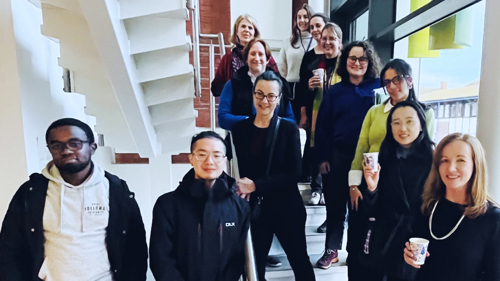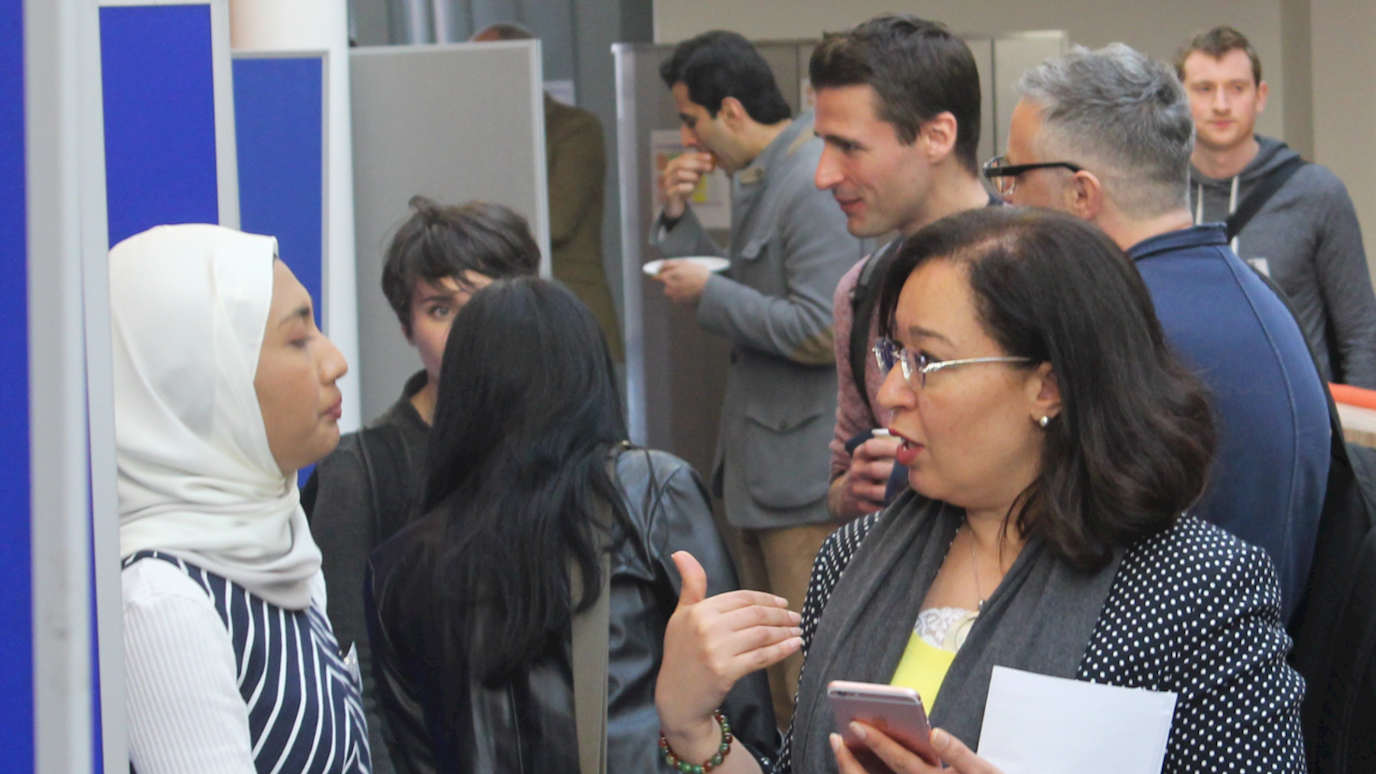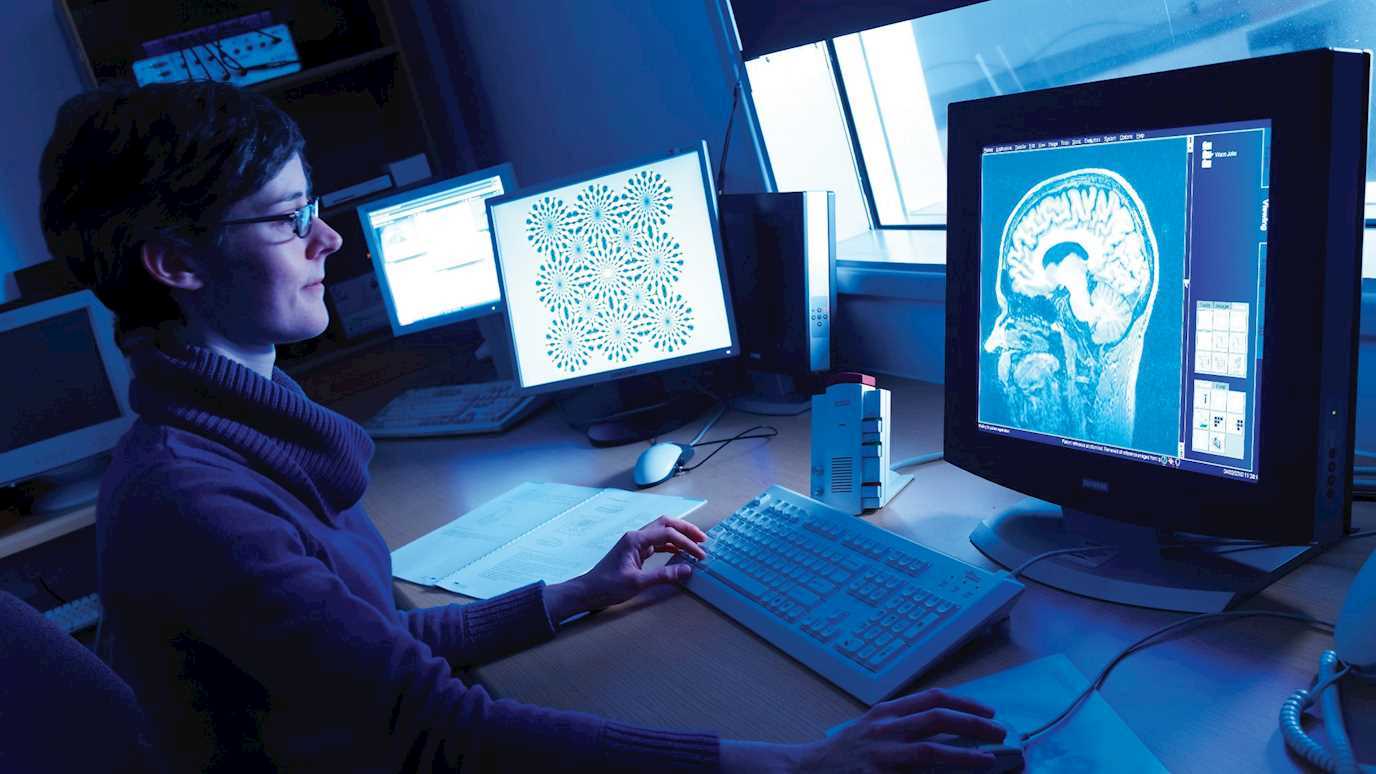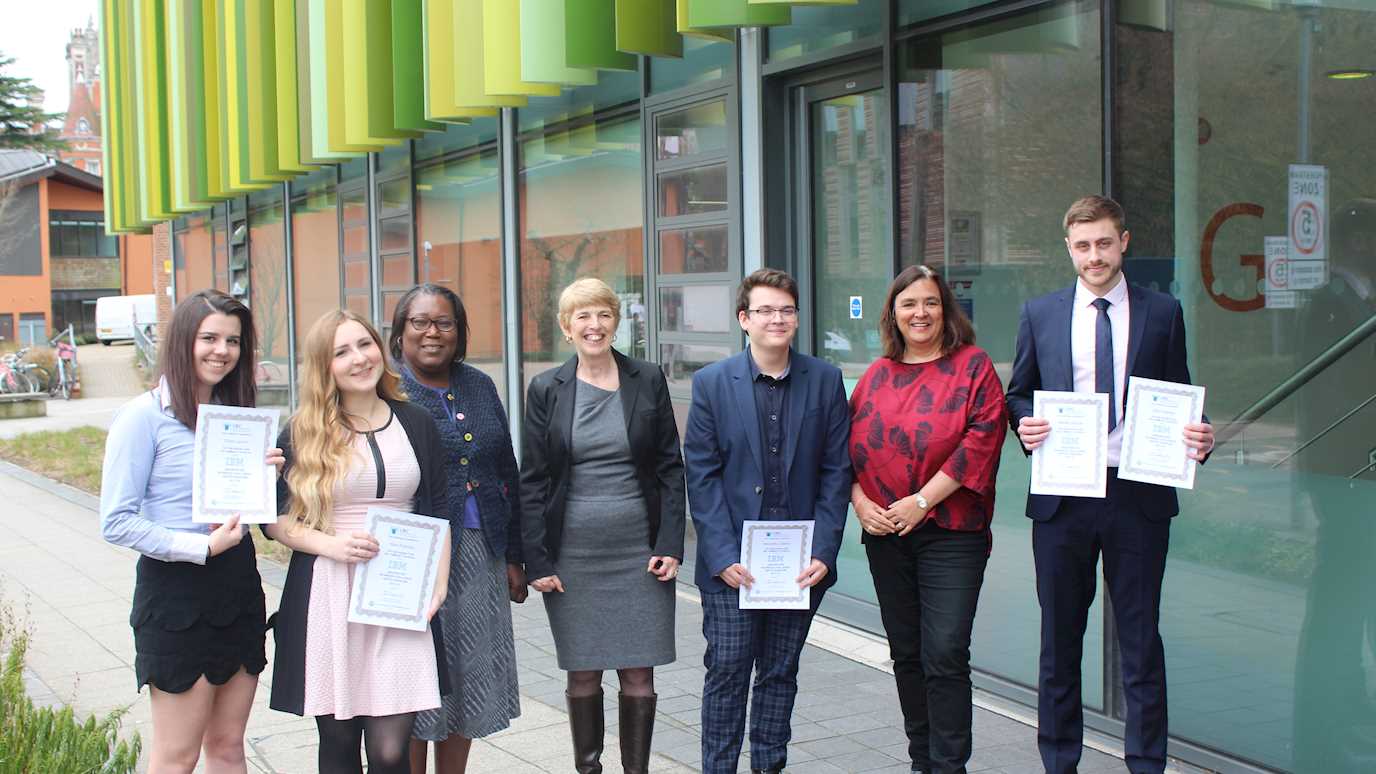The Centre for Research into Sustainability (CRIS) is a multidisciplinary, international group of researchers and educators at Royal Holloway, University of London, UK. We are actively engaged with the understanding of social/ethical, economic and environmental sustainability in contemporary society.
We approach sustainability in a broad and integrated manner, encompassing economic, social, ethical and environmental dimensions. Through our research, teaching, and collaborations with external partners, we strive to advance scholarship from a social and climate justice perspective by focusing on urgent global challenges such as poverty alleviation, social inequity, and the climate crisis.
We welcome opportunities to collaborate with other organisations on sustainability challenges; locally, nationally and internationally. Whether you are another research institution, a small/ medium sized enterprise, a social enterprise, an activist or social movement, an NGO, a multinational corporation or a public sector organisation, please contact us to discuss potential collaboration.
We hold regular seminar series and external speaker events; the majority of which are open to external attendees. Please check under the tab below to find details of our upcoming events and follow our LinkedIn page.
Key contacts
Dr. Susan O'Leary - Co-Director
Susan's research interests primarily relate to the use of accounting and accountability practices within non-governmental organisations (NGOs). She is particularly interested in the monitoring, evaluation and impact assessment tools used within NGOs, and how they are used to derive outcomes as diverse as accountability to financial donors to the fulfilment of social development obligations at a grassroots level. On a broader level, She is also interested in a range of theoretical perspectives that highlight accounting and accountability as a pluralistic and dialogic practice. Her research employs a critical and interdisciplinary style with an emphasis on case-based, qualitative and at times, ethnographic research methods.
Dr. Martina Hutton - Co-Director
Martina's research interests lie at the intersection of transformative consumer research and critical marketing. More specifically she focuses on consumer poverty, vulnerability and marketplace stress and exclusion. With a PhD in Equality Studies from the internationally renowned UCD School of Social Justice, she is an experienced qualitative PEFT researcher (Participatory, Emancipatory, Feminist, Transformative), actively engaging with community stakeholders and diverse groups of people experiencing economic difficulties and social/material marginalisation [poverty, hunger, post-prison socio-material experiences].
Our research
Check out our member’s publications and projects here.
The Centre for Research into Sustainability (CRIS) is a multidisciplinary, internationally-leading group of researchers and educators at Royal Holloway, University of London, UK. We are world-leading in three research areas, which form the basis of our expertise.
1. Accounting for Sustainability
This work covers topics of accountability, voluntary corporate reporting, sustainability accounting, and governance.
2. Responsible Consumption
This work covers topics of ethical consumption, marketing ethics, sharing and alternative economies.
3. Responsible Business
This work covers the evolution of corporate social responsibility and social and environmental sustainability, equality, diversity and inclusion, governance, lobbying, and alternative forms of organizational responsibility, including NGOS, SMEs and cooperatives.
In addition, our current cross-cutting critical agendas are:
Gender and Social Change
Keywords: Gender, masculinities, feminism, family roles, gendered commodity chains, representation of women in advertising.
Global Impact Chains
Keywords: Supply chains, value chains, environmental and social sustainability, developing country contexts, migration, immigration.
Precarious work and Modern Slavery
Keywords: Precarity, bonded labour, trafficking, stakeholder voice, regulation, inclusion and diversity, impacts of COVID-19.
Alternative Economies
Keywords: Subcultures, alternative living, sharing economy, anti-capitalism, afri-capitalism, social movements, digital nomads.
PhDs with CRIS
We are actively seeking high quality PhD students to work with CRIS members on sustainability-related topics. Please see individual staff research pages for an indication of their key interests and contact us directly to discuss further. General information on applying to study a research degree at Royal Holloway can be found here.
Partnerships and Collaborations
We work alongside a number of businesses, NGOs, research centres and universities. For more idea of our research collaboration, please see the NGOS, Business and Policymakers tab.
Our people

Our members come primarily from the School of Business and Management and the Department of Geography. CRIS works alongside the Sustainability, Responsibility & Ethics group in the School of Business and Management and the Politics, Development & Sustainability group in the Department of Geography, as well as collaborating with other colleagues from around the College.
Core members
Our core members can be found here.
Academic visitors within the 'Distinguished Scholar' programme
|
Prof. Andy Crane (2014) |
Prof. Jan Bebbington (2015) |
|
Prof. Ralph Hamman (2016) |
Prof. Mette Morsing (2016) |
|
Prof. Joseph Sarkis (2017) |
Prof. Michelle Greenwood (2019) |
|
Dr Oana Branzei (2020) |
Prof. Sankar Sen (2021) |
|
Prof. Judy Brown (2023) |
Prof. Melissa Bublitz (2025) |
Collaborating with Business, NGOs and Policymakers
The Centre for Research into Sustainability is a multinational and interdisciplinary research-based group with a wealth of knowledge and experience on organisational responses to sustainability challenges. With expertise in sustainability relating to accounting, supply chains and logistics, corporate social responsibility and business ethics as well as environmental issues, it is a privilege for us to work in partnership with other organisations. We have experience working with small and medium sized enterprises, social enterprises, multinational corporations and the public sector. Our work is always rooted in our internationally renowned scholarship.
Education and training
All of our undergraduate management courses include a foundation for Sustainable Business and we are working towards sustainability being embedded across the curriculum. We also offer a flagship course, MSc Sustainability & Management, which is taught jointly by the School of Business and Management and the Department of Geography.
The School of Business and Management, Royal Holloway, University of London, has been a signatory of the United Nations Principles of Responsible Management Education since 2008.
PhD Candidates
We are actively seeking high quality PhD students to work with CRIS members on sustainability-related topics. Please see individual staff research pages for an indication of their key interests or contact us directly to discuss further.
Our events
Upcoming Events:
May 19th – 23rd - Distinguished Visiting Professor - more details to follow
We will welcome Professor Melissa Bublitz who is the Liz Kramer Professor of Social Innovation and Entrepreneurship and Professor of Civil Society, Community Studies and Consumer Science in the School of Human Ecology, at the University of Wisconsin-Madison, USA. She will be running workshops and one-to-one sessions with colleagues and doctoral researchers as well as speaking at our Food In/Justice Event. We will send more details on her schedule closer to the time.
May 21 - CRIS Climate in Focus Event – FOOD IN/JUSTICE - Shilling Building
Originating from the Food Justice Movement, our event focuses on the idea that everyone should have access to healthy and sustainable food, recognising the link between food, health, and the environment. A cross-disciplinary event with academics, food justice networks, organisations and lobbying groups involved nationally and internationally in food sustainability and food inequalities.
Timetable:
09:30-10:00 Arrival & refreshments
10:00-10:10 Welcome address
10:15-11:00 Professor Benedetta Cappellini, Durham University Centre for Sustainable Consumption: Careless (food) Marketing: A Caring Agenda for Studying Food
11:00 - 12:00 Practitioner Keynote: Vera Zakharov, Local Action Co-ordinator SUSTAIN
12:00-12:45 Lunch & networking
12:45- 13:30 Professor Melissa G. Bublitz, University of Wisconsin-Madison & CRIS Distinguished Visiting Scholar: Food Justice for Farmworkers
13:30 -13:45 Refreshments
13:45 - 14:30 Panel & roundtable discussion: Food In/Justice - Policy Impasses and Possibilities
14:30 - 15:00 Close & final networking
External attendees, please book using our Eventbrite LINK .
June 23 - CRIS Research Away Day - Senate House, London
For CRIS members and colleagues, an opportunity to share, present, discuss their work in progress with an evening social event afterwards.
Past Events:
April 30
CRIS Wicked Fringe 2025: “Perpetuating Injustices”
- Stewart House, London, 9.30am - 3:30pm
This year’s Wicked Fringe will critically examine how injustices are sustained and challenged across different domains, structured around three themes: Contested Spaces, Contested Commodities, and Contested Partnerships.
Speakers included: Rohit Varman (University of Birmingham), Rania Kamla (University of Edinburgh), Georgios Patsiaouras (University of Leicester), Raisa Pina (University of Brasilia, Visiting PhD at Oxford University) and Nick McGuigan (Monash University)
The event included presentations from speakers, panel discussions, interactive dialogues, and a closing roundtable to synthesise insights and explore pathways for change.
21 June 2024 – Wicked Fringe: Complex societal and Environmental Problems examined from the fringe.
Speakers:
- Jennifer Cole - Mapping antimicrobial resistance through the food chain: Challenges of animal sourced food and climate change.
- Andres Mora - Refugee crisis in focus: shedding light on some of the challenges and potential areas of promise in these approaches in dealing with the growing scaled of forced migration globally.
- James Cronin - On the Political Economy of Single - Use Plastics: Insights from the PPiPL Project
- Raeeka Yassaie - Strengthening the connective tissue between our movements: How can we truly work together in our efforts to make the world a safer place for us all?
28 November 2024 - Distinguished Lecture (Online) – Professor Lilie Chouliaraki: The weaponization of victimhood: the politics of pain and power today
Why is being a victim such a popular identity today? Who exactly claims to be a victim? Who benefits and who loses from the struggles over victimhood in our public cultures? Drawing on examples from the struggle over reproductive rights in the US and the Covid-19 pandemic, I will discuss how claiming victimhood is about claiming power. My talk will draw attention to the politics, actors and platforms through which claims to pain are systematically appropriated and weaponized to serve the interests of powerful actors and groups. In so doing, it will highlight the ways in which social struggles over victimhood in public discourse and social media are struggles about who owns the languages of pain, who deserves to be protected as a victim and who should be punished as perpetrator. Particularly in the context of far-right populism, I argue, we need to be aware of and critically interrogate the strategies of victimhood that are used in public discourse to perpetuate old exclusions and introduce new injustices in society.
Lilie Chouliaraki is Professor of Media and Communications at the London School of Economics and Political Science. Her work examines the ethical and political complexities of communicating human suffering in the media with emphasis on four domains in which suffering appears as a problem of communication: disaster news; humanitarian and human rights advocacy; war and conflict reporting; and migration news. Her recent work is on the cultural politics of victimhood in western societies.
2 December 2024 - Climate in Focus seminar & CRIS Christmas Social
In the first of our seminar series, we have invited two keynote speakers. Dr Tanya Fiedler will present on "Navigating Expertise in a Changing Climate". The brief abstract focuses on 1) Assumptions underpinning expertise are challenged under climate-related financial reporting obligations; 2) Revisit these assumptions by drawing on 34 interviews; 3) Identify dynamic and relational mechanisms by which to conceptualise climate expertise.
Our second speaker Dr Sasha Engelmann will present on "Mapping Planetary Weather through Creative Practice, Design and Collective Action". The brief abstract focuses on 1) Artists have long played important roles in mapping encounters with environmental change; 2) Explore an experimental map of planetary weather created by open-weather project.
Following the seminar CRIS members were able to celebrate the festive season a little early at the CRIS Christmas Social.

























